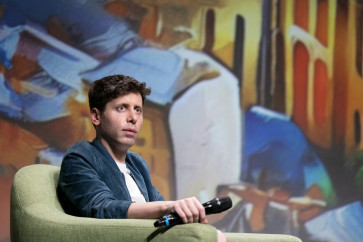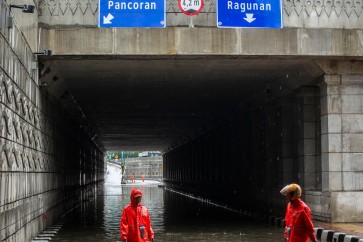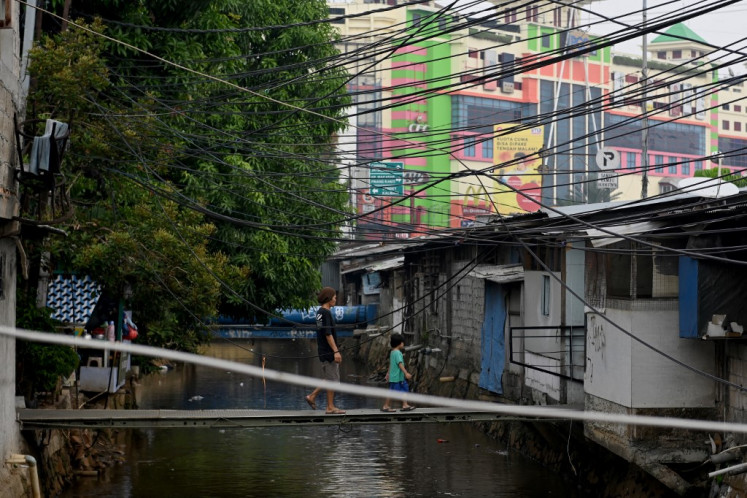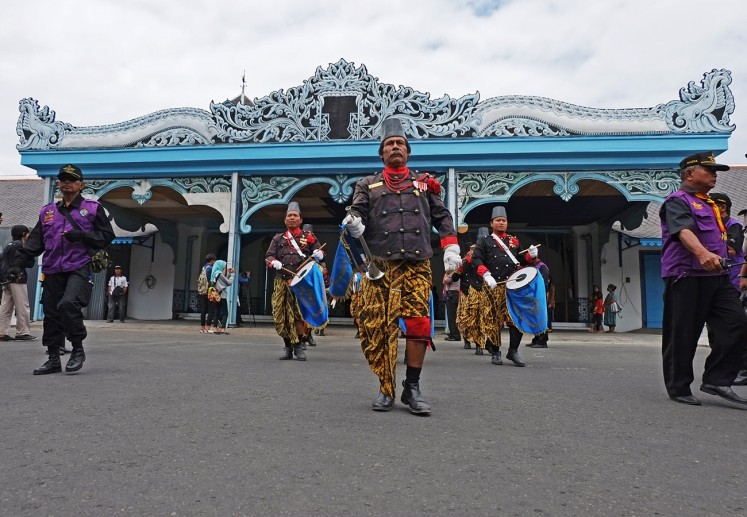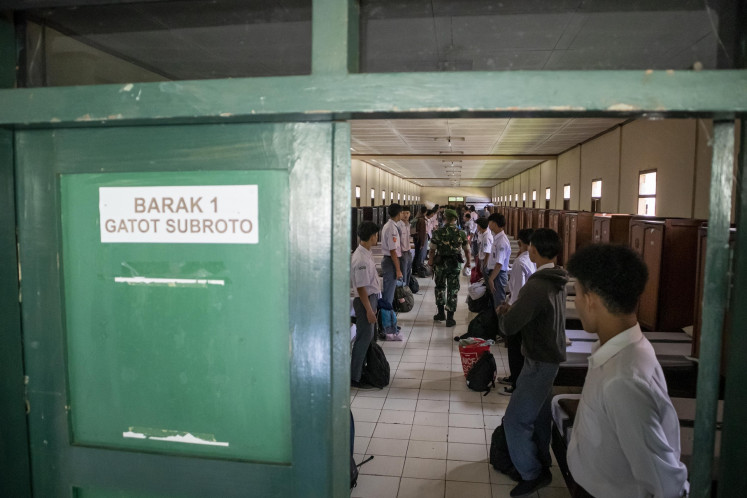Merkel appeals to Jokowi to abolish death penalty
German Chancellor Angela Merkel has appealed to President Joko “Jokowi” Widodo to abolish capital punishment in Indonesia, following Jakarta’s decision last year to execute a number of convicted drug traffickers
Change text size
Gift Premium Articles
to Anyone

G
erman Chancellor Angela Merkel has appealed to President Joko “Jokowi” Widodo to abolish capital punishment in Indonesia, following Jakarta’s decision last year to execute a number of convicted drug traffickers.
Merkel expressed Germany’s aspiration during her meeting with Jokowi at the Chancellery in Berlin in which she and Jokowi discussed human rights issues, especially in Papua and Aceh.
“It is expected that Indonesia will take the stance with that of Germany [on the death penalty],” Merkel responded to a question raised by reporters during a press conference after the closed-door meeting.
Under Jokowi’s orders, the Attorney General’s Office (AGO) has executed at least 14 drug convicts including foreign nationals from Australia, Brazil, France, Malawi, the Netherlands, Nigeria and Vietnam.
The executions were conducted in two rounds in January and April in spite of international outcry against the decision. Jokowi said that the capital punishment could create a deterrent effect to drug dealers.
Merkel made the appeal as Indonesia is now gearing up to execute 14 more traffickers, mostly foreign nationals, in the near future. The AGO has yet to set dates for the executions.
Responding to Merkel’s request, Jokowi said that in the near future his government had no intention to abolish the death penalty as the country was currently stepping up its war on drugs.
Jokowi said that between 30 and 50 people died per day in Indonesia due to drug addiction problems.
He assured Germany that Indonesia treated death row inmates humanely and that his government would guarantee protection of their rights until the moment of their execution.
“The positive law in Indonesia still regulates the death sentence. We are currently at a level of emergency in the fight against drugs. There are between 30 and 50 people in Indonesia dying per day because of drugs. We carry out the legal process on death sentences carefully and we also ensure all rights of the convicts to be fulfilled [during the legal process],” Jokowi said.
During the meeting, Jokowi and Merkel also agreed to Indonesia and Germany forming a cooperation to help Indonesia implement a dual vocational system that Germany had successfully established to support growing demand for skilled workers in Indonesia.
Jokowi said that Germany would invest more in Indonesia and that his administration had launched a number of programs to make Indonesia a friendly place for foreign investment.
Meanwhile, Merkel said that Jokowi was also interested in finalizing efforts to establish free trade agreements (FTA) with European countries including Germany.
“Germany supports the negotiation [on the FTA] to kick off [in the near future],” Merkel said.
At the moment, there are around 300 German companies doing business in Southeast Asia’s largest economy, compared with 1,500 representative branches of German business interests in Singapore.
Trade with the EU in 2015 was valued at US$26.14 billion, making the bloc Indonesia’s fourth-biggest trade partner, and with $2.26 billion, its third-biggest investor.
During the meeting, Merkel also said that Germany was also interested to learn more about how Indonesia handles terrorism, especially now that hundreds of Indonesians had joined foreign fighters in Syria.

